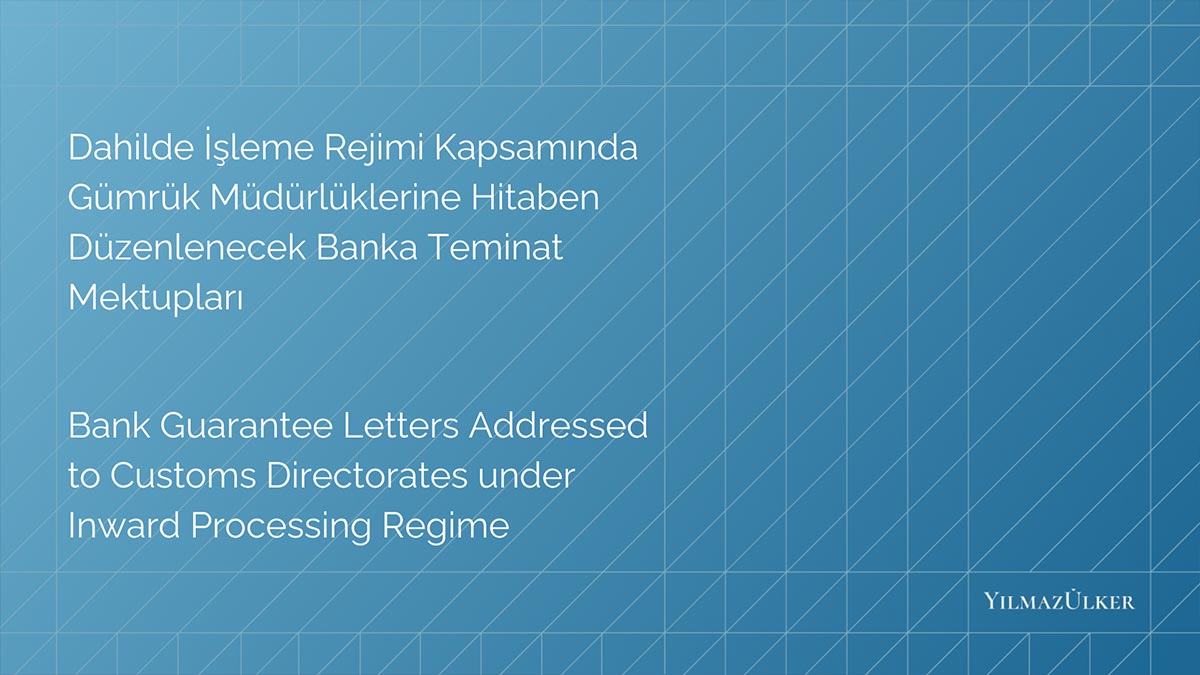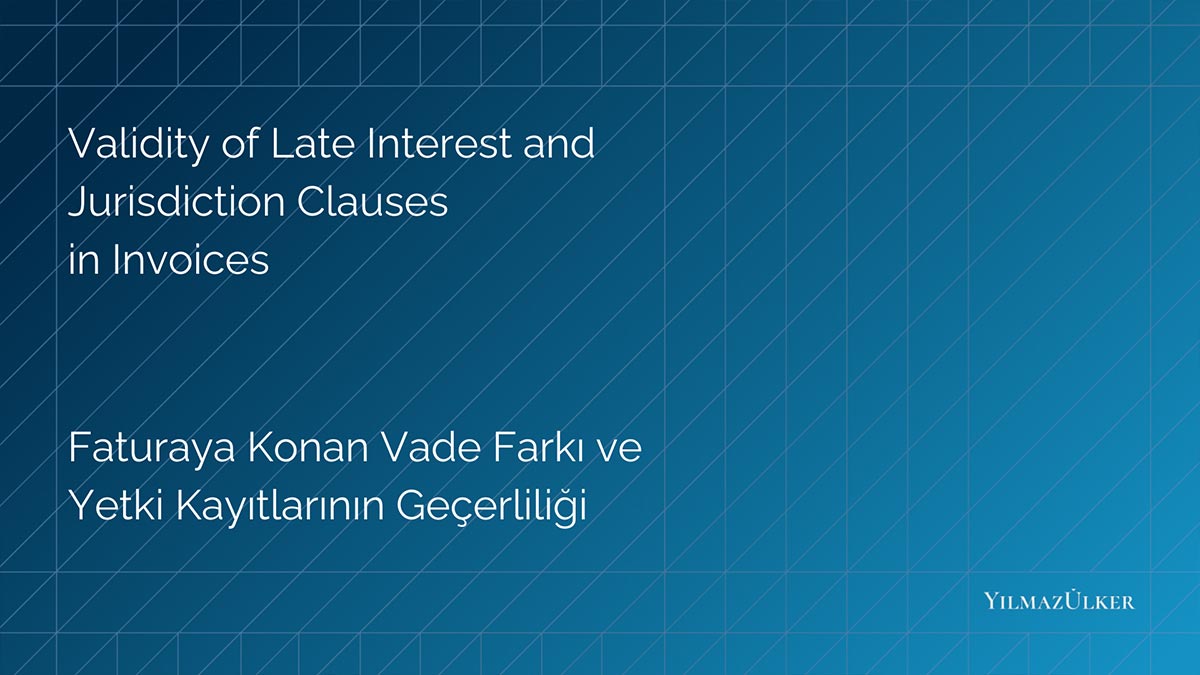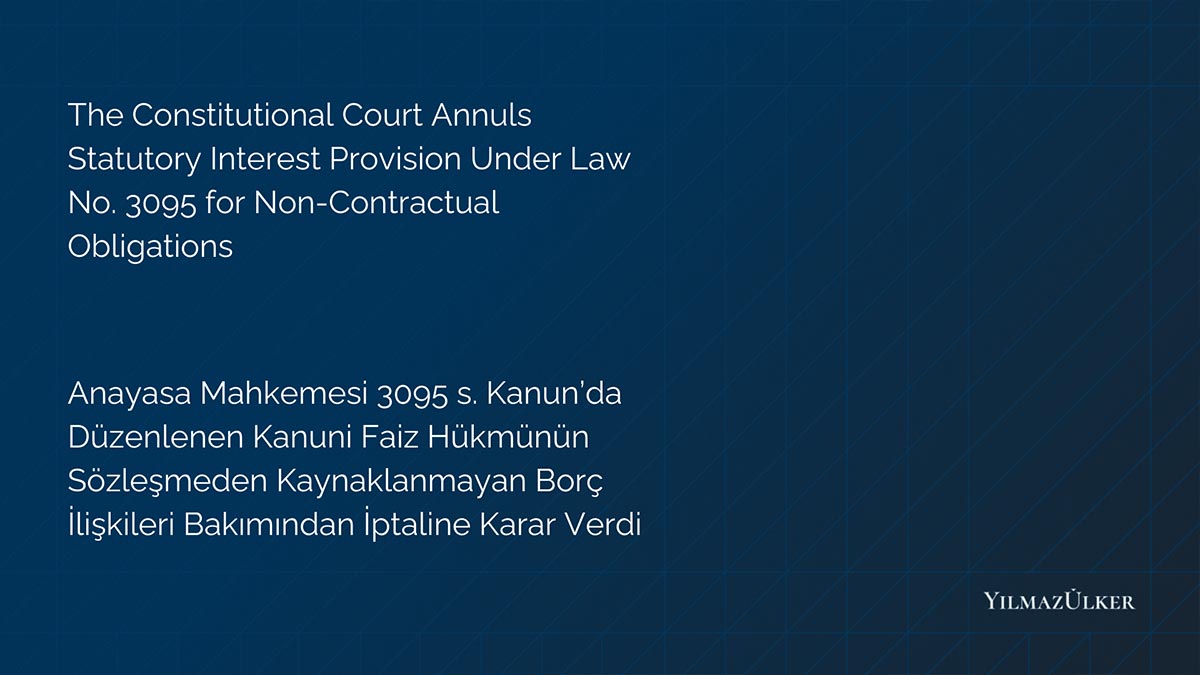Actualités & Publications

Bank Guarantee Letters Addressed to Customs Directorates under Inward Processing Regime
Bank Guarantee Letters Addressed to Customs Directorates under Inward Processing Regime
The Inward Processing Regime (“IPR”) is a system aimed at increasing Türkiye’s foreign exchange earnings from exports, while simultaneously reducing the transfer amounts stemming from imports, thereby enhancing the country's existing foreign exchange reserves. IPR encompassing both tax regulations and customs and exchange legislation, is characterized by a complex structure in terms of exchange, tax/fund exemptions, and exchange practices.
IPR [1] operates in two ways:
The first method allows the exporting company to import (or purchase equivalent goods domestically) using D-1 and D-3 [2] coded documents under the same export incentive document, subject to an export incentive certificate and a certain amount of export undertaking.
The second method [3], however, operates by obtaining permission solely for the importation of a specific good, substance, or intermediate good from the Customs Directorate, and unlike the first method, it is a different version that does not require the issuance of an incentive document, as import permission is granted.
Suspension or Drawback System Applications Within the Scope of IPR
Since the main and significant part of the IPR regulation consists of import transactions to be carried out within the scope of IPR, a dual option “Suspension or Drawback System' import regulation has been established under this legislation.
In the application of the Suspension System, it is essential for the exporting company to adhere to IPR measures regarding its imports within IPR scope. Under this, the company is allowed to import raw materials, substances, intermediate goods, and packaging materials, provided that they are utilized within the exports conducted by the exporting company and do not exceed the foreign exchange usage rate specified in the incentive certificate. Additionally, these imported materials must be present within the committed export final product.
In this context, companies holding documents are required to provide guarantees addressed to the Customs Directorate where the actual imports take place in order to meet the tax/fund obligations arising from the incentivized imports to be made under the Suspension System.
In the Drawback System, as compared to the Suspension System, the refund/fund to be refunded to the exporting company is equivalent to the portion of the exports committed under DIIM scope, based on the goods allowed to be imported under the document, having paid all taxes/funds arising from the importation. These refunds are made to the exporting company based on the commitment of exports (previously collected during the actual importation) corresponding to the exports committed.
Guarantees Accepted by Customs Directorates
According to customs regulations, Customs Directorates accept three types of guarantees for imports into the country; these are, respectively, cash, treasury bills/government bonds, and bank guarantee letters.
In practice, exporting companies holding DIIM, request bank guarantee letters from banks to cover the guarantee of customs taxes/funds payable to Customs Directorates. Since the texts of the guarantee letters to be issued by banks to the relevant Customs Directorates are determined by customs regulations, there are usually no issues in practice. However, problems may arise regarding the preparation of the letter within the scope of IPR, as well as the application of tax, duties, and fee exemptions. In this context, it is necessary to take the necessary precautions to prevent potential problems beforehand and to quickly resolve any issues encountered in practice.
Bibliography
- [1] The Inward Processing Regime (Dahilde İşleme Rejimi), refers to "Document of Import for Industry and Manufacturing," representing exports or sales and deliveries deemed as exports (domestic sales and deliveries) made with imports or domestically sourced equivalent goods, benefiting from incentive elements.
- [2] The Document of Import for Industry and Manufacturing (“DIIM”) (Dahilde İşleme İzin Belgesi) within the scope of IPR refers to the documents issued for exporting companies, indicating the import subject to authorization and the exports committed primarily based on this import. It encompasses the documents issued in the name of the exporting company. These documents include the D-1 coded “Certified Actual Goods Export” and the D-3 coded “Domestic Sales and Deliveries”.
- [3] The Inward Processing Authorization (“IPA”) (Dahilde İşleme İzni) within the scope of IPR refers to the importation to be conducted under the permission and control of the relevant customs directorates (it only allows importation, not domestic procurement) and the exports to be carried out based on this importation.
The above information reflects the general assessments of YılmazÜlker Attorney Partnership ("YılmazÜlker") regarding the subject matter and do not constitute legal opinion or legal consultancy services. Before taking any action based on the matters stated herein, it is recommended to seek professional legal advice by considering the specific circumstances of the case. YılmazÜlker shall not be held liable for any consequences arising from or in connection with the content of this document.






#yilmazulker #inwardprocessingregime #customs #bankguaranteeletters #publication